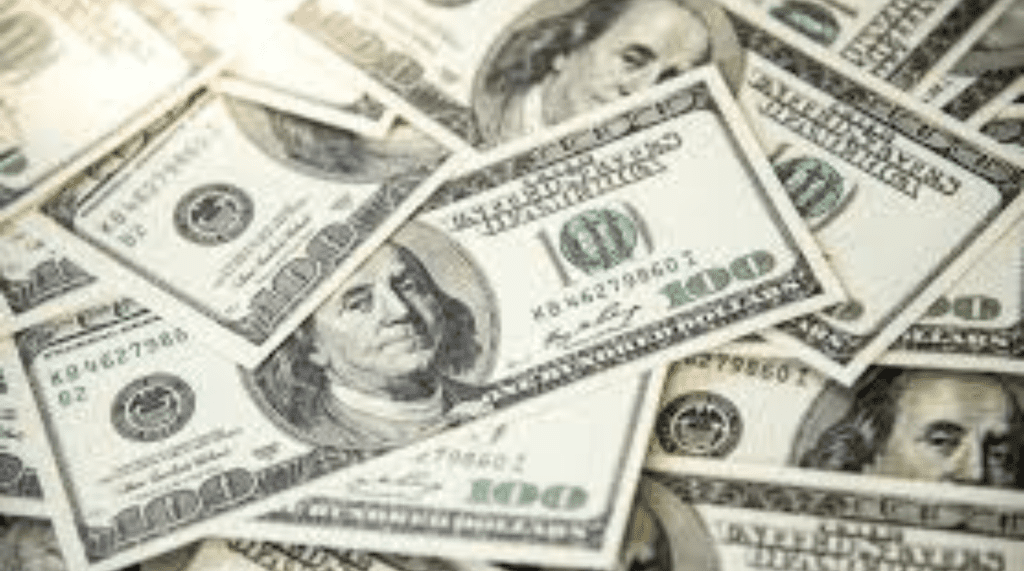In a bid to stabilize Nigeria’s foreign exchange market, the Federal Government has announced a nine-month grace period for Nigerians holding undeclared dollars outside the banking system. The government’s ultimatum aims to draw substantial amounts of foreign currency back into the country’s financial channels, targeting those who possess substantial cash reserves in dollars and other foreign currencies. This policy comes as part of a broader strategy to mitigate ongoing pressures on the naira and revive confidence in Nigeria’s foreign exchange market.
According to officials, the grace period offers a “window of compliance” for individuals to deposit their foreign currency holdings in Nigerian banks without facing legal scrutiny. Authorities hope this amnesty will help counteract the foreign currency shortage that has intensified the naira’s depreciation and restricted Nigeria’s capacity to meet international trade obligations. By reintegrating these funds, the government anticipates greater currency stability, enhanced liquidity, and increased foreign reserves.
Addressing a Market in Crisis
Minister of Finance and Coordinating Minister of the Economy, Wale Edun, outlined the program’s intentions, explaining that a significant number of Nigerians have opted to keep foreign currency outside the official banking system. This widespread practice, spurred by lack of trust in the financial system and concerns over currency volatility, has contributed to the shortage of dollars in official channels. Edun emphasized the government’s aim to encourage Nigerians to contribute their foreign reserves to national coffers while ensuring their security and minimizing the risks associated with holding cash outside of financial institutions.
This initiative follows months of instability in the forex market, where surging demand for dollars has consistently outpaced supply, placing immense strain on the value of the naira. As the currency weakened, Nigeria’s Central Bank faced mounting challenges in fulfilling import requirements and supporting critical sectors reliant on foreign exchange. With the grace period in place, the government is optimistic that redirecting dollar holdings into the banking sector will help restore equilibrium to the forex market, boosting the Central Bank’s capacity to intervene effectively.
Incentives for Deposit Compliance
In a bid to incentivize compliance, the Federal Government has assured that depositors participating in this program will be exempt from tax scrutiny on the declared funds during the amnesty period. The goal is to provide citizens with the assurance that their funds will be safe, while the government focuses on fortifying Nigeria’s financial resilience.
Additionally, the government highlighted that participating in the program would grant depositors access to the banking sector’s financial services and protections. According to sources within the finance ministry, this initiative could be a gateway for people previously skeptical about formal banking systems to become long-term participants, thereby strengthening the broader economy.
Economic analysts believe this window could signal a “new era” of forex management, one that prioritizes building reserves over short-term market interventions. By focusing on more sustainable forex inflows, officials hope to make the Nigerian economy more resilient to global market volatility and reduce dependency on unsustainable forex interventions.
Mixed Reactions and Industry Perspectives
While the announcement has stirred optimism in some quarters, experts remain cautious about its broader impacts on the economy. Concerns include whether the amnesty will be sufficient to convince holders of substantial dollar amounts to relinquish their cash, given the deep-rooted issues of currency confidence. Economist and financial analyst Dr. Umar Abdullahi noted, “The success of this initiative depends largely on restoring trust. People will need to feel confident that their deposits are both secure and accessible.”
Others see the move as a necessary intervention, arguing that the amnesty may offer the government a lifeline by strengthening Nigeria’s forex reserves. According to an industry insider, “This policy could help tackle some long-standing forex issues, but it’s only one piece of a much larger puzzle.”
The Nigerian government has also been working on several complementary measures to improve forex stability, including policies aimed at reducing the economy’s reliance on imports, thus lowering the demand for foreign currency. By bolstering domestic production and strengthening local industries, officials hope to curb the high demand for dollars in the long run, allowing the naira to stabilize naturally.




















